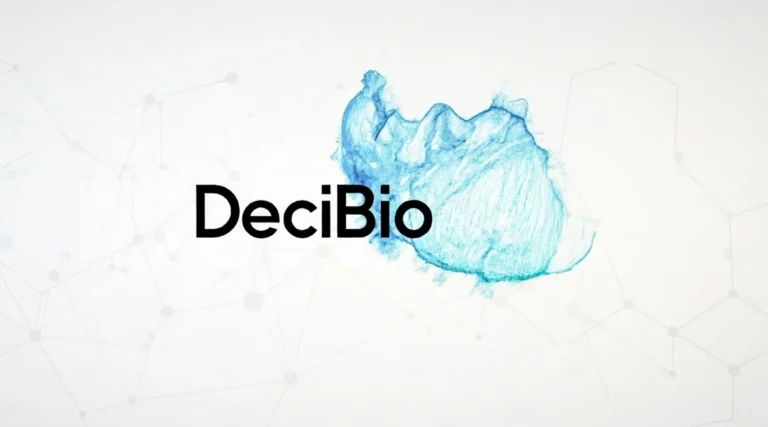
Innate Pharma Announces First Quarter 2025 Financial Results and Business Highlights
Innate Pharma SA (Euronext Paris: IPH; Nasdaq: IPHA), a clinical-stage oncology-focused biotechnology company pioneering innovative immunotherapies, announced its consolidated financial results for the first quarter ending March 31, 2025, along with key operational and pipeline developments.
CEO Jonathan Dickinson highlighted the company’s solid performance during the quarter, underscoring significant progress across its proprietary drug development programs, expansion of strategic collaborations, and a bolstered financial position. “The first quarter of 2025 was marked by significant progress across both our pipeline and strategic partnerships,” said Dickinson. “Sanofi’s €15 million equity investment reflects our shared conviction in the potential of our pipeline and the strength of our partnership. With the initiation of the Phase 1 study for IPH4502, our novel Nectin-4-targeting antibody-drug conjugate, and key presentations at AACR, along with the FDA’s Breakthrough Therapy Designation for lacutamab, we are strongly positioned to deliver meaningful therapeutic advances to patients. Our strengthened financial position provides a cash runway into mid-2026.”
Advancing the ANKET® Platform: Targeted NK Cell Engagers for Cancer
Innate Pharma continues to drive development of its proprietary ANKET® (Antibody-based NK cell Engager Therapeutics) platform, which is designed to harness and redirect the natural cytotoxic capabilities of natural killer (NK) cells toward cancer cells via multispecific antibody-based engagers.
IPH6501: Pioneering NK Cell-Based Immunotherapy in B-Cell Lymphoma
IPH6501, Innate’s wholly owned ANKET®-based therapy targeting CD20 and incorporating a proprietary IL-2 variant, is being evaluated in a Phase 1/2 clinical trial for patients with B-cell non-Hodgkin’s lymphoma (B-NHL). The ongoing study is being conducted across clinical sites in the United States, France, and Australia, with plans to enroll up to 184 patients. First safety and early efficacy data are expected in late 2025, potentially positioning IPH6501 as a differentiated therapy in the B-NHL treatment landscape.
Strategic Reorganization of IPH6101 with Sanofi
In a strategic realignment with Sanofi, Innate has regained full rights to IPH6101 (SAR’579), an anti-CD123 ANKET® candidate originally developed under their 2016 research and license agreement. The transition reflects evolving priorities for both parties. While Sanofi had advanced the program into Phase 2 dose expansion in April 2024, the ongoing Phase 1/2 trial (NCT05086315) will now continue under a transition plan to be finalized between the partners. Results from the dose-escalation stage were recently presented at the EHA 2024 Congress.
SAR’514/IPH6401 Refocused for Autoimmune Applications
Sanofi has opted to redirect development of SAR’514/IPH6401 (a BCMA-targeting ANKET®) from relapsed/refractory multiple myeloma to autoimmune indications. Consequently, the current Sanofi-led Phase 1/2 trial (NCT05839626) in multiple myeloma will be terminated early, and development will be repurposed for immune-related disorders under the original agreement terms.
IPH62 and Future Collaborations
Another candidate from the ANKET® pipeline, IPH62, targets B7-H3, a protein commonly expressed on various solid tumors. Sanofi retains rights to develop, manufacture, and commercialize IPH62 following candidate selection. Additionally, Sanofi still holds the option to select one more ANKET® target under their 2022 collaboration agreement.
Novel ADC Program Takes Shape: IPH4502 Begins First-in-Human Trials
Innate has made a significant leap in the antibody-drug conjugate (ADC) space with the clinical initiation of IPH4502, a proprietary Nectin-4-targeted ADC utilizing a topoisomerase I inhibitor payload. The first patient in the Phase 1 trial was dosed in January 2025. The study will evaluate safety, tolerability, and preliminary efficacy in approximately 105 patients with advanced solid tumors known to express Nectin-4—including urothelial carcinoma, non-small cell lung cancer, breast, gastric, colorectal, ovarian, and esophageal cancers.
New preclinical data presented at the American Association for Cancer Research (AACR) Annual Meeting 2025 showcased the superior efficacy of IPH4502 compared to enfortumab vedotin (EV), especially in urothelial carcinoma models with low or heterogeneous Nectin-4 expression, as well as in EV-resistant models. Activity was also observed in models of triple-negative breast cancer, esophageal cancer, and head and neck squamous cell carcinoma, suggesting the broad clinical potential of the candidate. Additional information will be shared in a “Trial in Progress” poster at the 2025 ASCO Annual Meeting.
Lacutamab: Breakthrough Designation and Path to Phase 3

Innate’s wholly owned anti-KIR3DL2 monoclonal antibody, lacutamab, continues to show promise across multiple T-cell lymphoma indications. The TELLOMAK Phase 2 trial is assessing its efficacy in Sézary syndrome and mycosis fungoides. In February 2025, the U.S. Food and Drug Administration (FDA) granted Breakthrough Therapy Designation to lacutamab for the treatment of relapsed or refractory Sézary syndrome based on compelling efficacy and safety results in heavily pretreated patients post-mogamulizumab.
This regulatory milestone significantly accelerates the pathway toward potential approval in the U.S. Partnering discussions are currently ongoing, and Phase 3 planning is underway in collaboration with both the FDA and EMA. Updated long-term follow-up data from TELLOMAK will be presented at ASCO 2025.
In addition, the Phase 2 KILT trial—led by the Lymphoma Study Association (LYSA)—is evaluating lacutamab in combination with GEMOX chemotherapy in patients with KIR3DL2-expressing peripheral T-cell lymphoma (PTCL). Recruitment is ongoing.
Collaborations with AstraZeneca: Progress in Lung Cancer Immunotherapies
Monalizumab in PACIFIC-9 and NeoCOAST-2
Monalizumab, Innate’s anti-NKG2A antibody partnered with AstraZeneca, is being evaluated in the PACIFIC-9 Phase 3 trial. The study assesses the combination of durvalumab (anti-PD-L1) with either monalizumab or AstraZeneca’s oleclumab (anti-CD73) in patients with unresectable Stage III non-small cell lung cancer (NSCLC) who have not progressed following chemoradiation therapy.
Separately, AstraZeneca will present results from the NeoCOAST-2 Phase 2 trial at ASCO 2025. This study explores neoadjuvant and adjuvant combination therapies with durvalumab and novel immune-oncology agents, including monalizumab, in resectable NSCLC.
IPH5201 (Anti-CD39) and IPH5301 (Anti-CD73)
IPH5201, a CD39-targeting antibody developed with AstraZeneca, is being evaluated in the ongoing MATISSE Phase 2 trial for neoadjuvant treatment of lung cancer. Patient recruitment remains on track.
IPH5301, a CD73-targeting antibody, is under investigation in a Phase 1 trial (CHANCES), sponsored by Institut Paoli-Calmettes. Both agents highlight the expanding breadth of Innate’s immune-modulating antibody portfolio.
Corporate Developments and Financial Highlights
In April 2025, Innate announced that Sanofi had subscribed to an equity investment of €15 million, acquiring 8,345,387 new shares at €1.7974 per share. This capital increase, equivalent to 9.05% of Innate’s outstanding shares, further strengthens their long-standing collaboration and Innate’s balance sheet.
As of March 31, 2025, Innate’s cash, cash equivalents, and financial assets totaled €72.5 million. Financial liabilities were reported at €29.2 million. Notably, the €15 million received from Sanofi was not included in the quarter-end cash position, further improving the company’s financial visibility into mid-2026.
Total revenue for Q1 2025 was €1.2 million, compared to €6.6 million in the same quarter of 2024. Revenue primarily consisted of recognition of collaboration and licensing payments related to Innate’s ongoing partnerships with AstraZeneca and Sanofi.
Additionally, the company intends to propose a major governance change at its Annual General Meeting on May 22, 2025. The proposal recommends transitioning from an executive board/supervisory board model to a single board of directors with a CEO, aligning Innate’s governance structure with international best practices and enhancing strategic agility.





